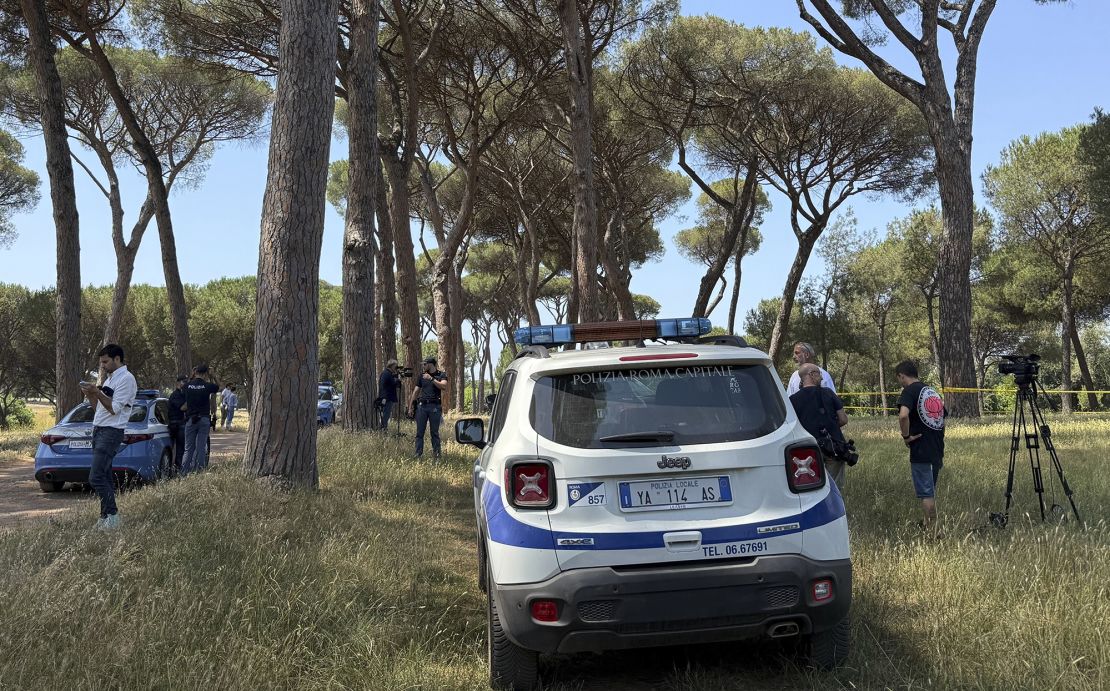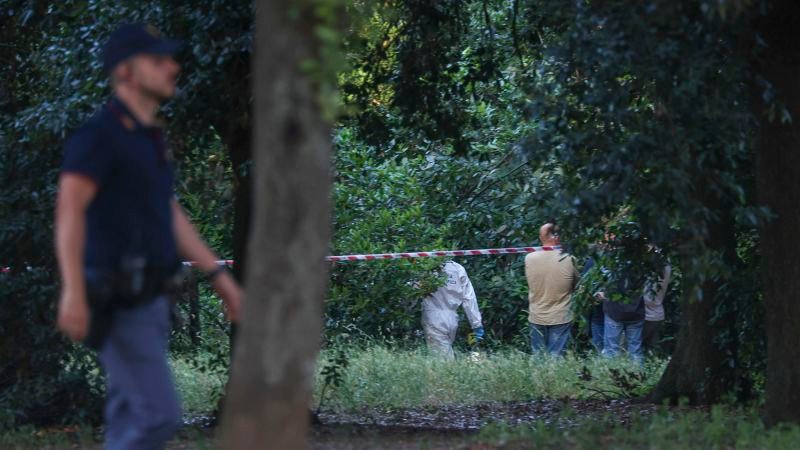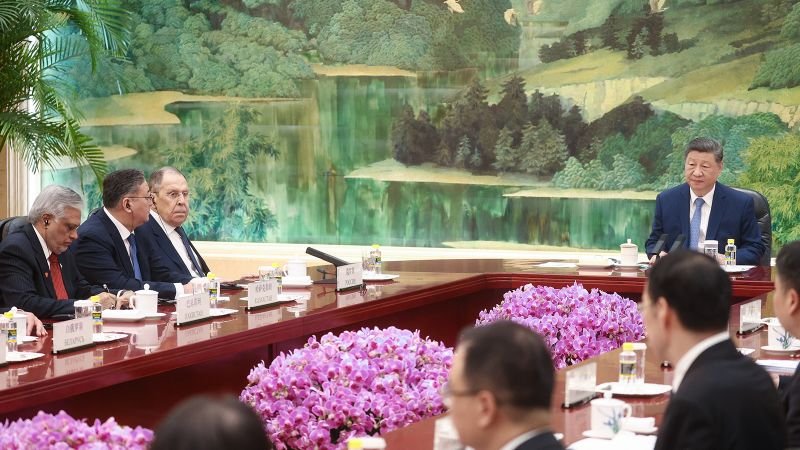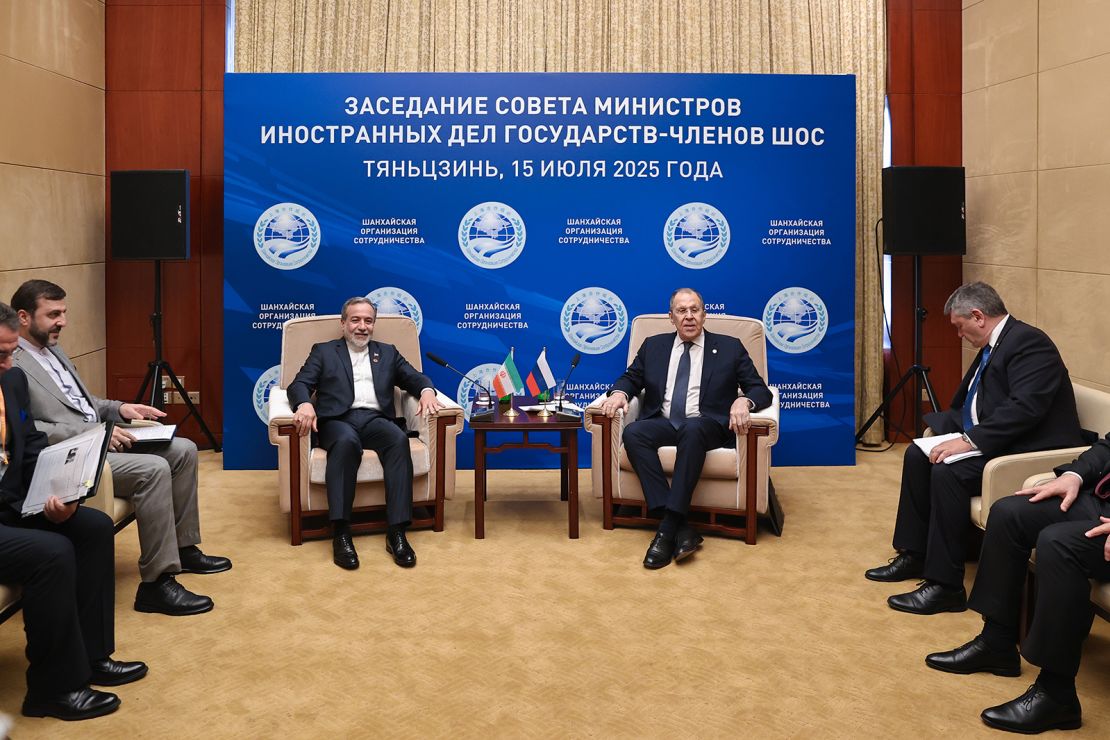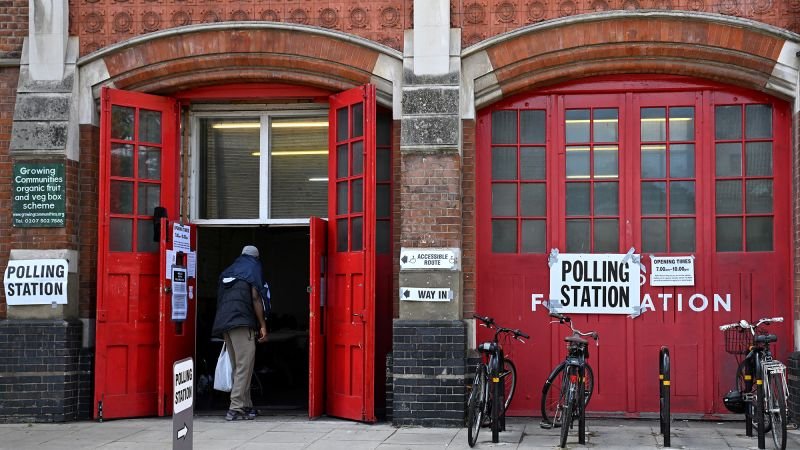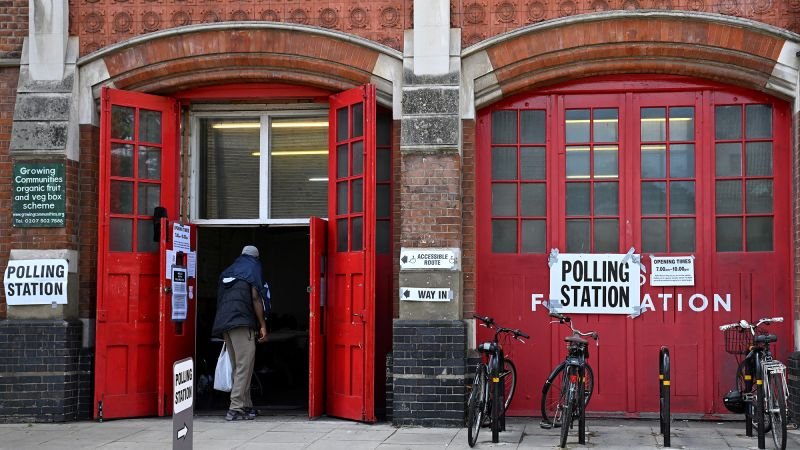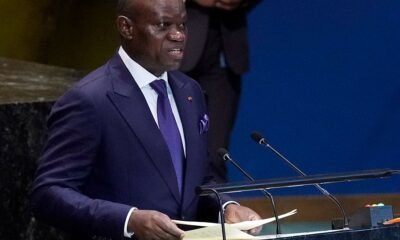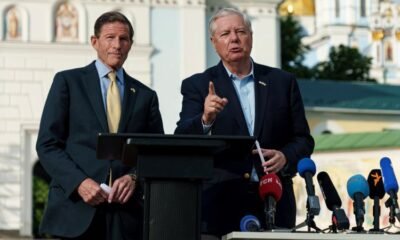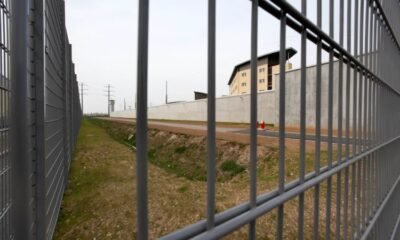Hong Kong
CNN
—
Weeks after his country was battered by waves of Israeli strikes and the US bombed three of its prized nuclear facilities, Iran’s foreign minister came to a gathering of regional diplomats in China this week with a simple ask.
Their group, the Beijing and Moscow-backed Shanghai Cooperation Organization, should have a way to coordinate response to military aggression and play a “central role” in addressing such threats, Abbas Araghchi said, according to Iranian state media.
Along with Iran, fellow SCO members China and Russia are key members of what lawmakers in Washington have dubbed an “axis” of authoritarian nations or a growing anti-American alignment of Iran, North Korea, China and Russia.
But Iran’s proposal didn’t seem to get the direct endorsement of the group, a regional security body whose 10 members include close partners China and Russia, but also rivals India and Pakistan.
And contained in Araghchi’s message was a public hint of Iran’s disappointment: that in its time of need last month – when Israeli and US forces struck at will at top military and technological targets – its powerful friends in Beijing and Moscow appeared to sit on the sidelines.
Even still, in a meeting with Chinese Foreign Minister Wang Yi in China’s Tianjin on Wednesday, Araghchi “thanked China for its valuable support to Iran,” according to a Chinese readout.
Earlier this month at a summit of BRICS, another China- and Russia-backed grouping of major emerging economies, member state Iran got little more than a statement of “serious concern over deliberate attacks on civilian infrastructure and peaceful nuclear facilities.”
The declaration “condemned” the strikes but did not name Israel or the US.
China’s public response – to explicitly condemn the attacks, but not take an evident direct role in peacemaking – however, was widely seen as a sign of the limits to its power in the Middle East, despite its bid in recent years to ramp up its economic and diplomat clout in the region.
Beijing has instead focused on using the conflict to play up another message: that China does not want to be a global leader that uses power in the same way as the US.
The propaganda machine of China’s ruling Communist Party has long decried America’s “hegemony” and its “wanton use” of force as its rolls out examples of US’ involvement in multiple conflicts of recent decades.
Frictions with Washington over trade and tech make selling that messaging more important for Beijing, as it needs friends now more than ever. And it sees US President Donald Trump’s brash “America First” foreign policy as creating an opening there.
Over the past decade, Chinese aggression to enforce its disputed claims in the South China Sea, its military intimidation of Taiwan, and the growing reach of its expanded navy, whose aircraft carrier strike groups recently conducted drills further from home shores and in greater strength than ever before, have raised alarm among its neighbors – and fueled Washington’s urgent warnings to its allies against dealing too closely with China.
Beijing has cried “hypocrisy” and, in 2022, Chinese leader Xi Jinping unveiled his own vision for global security architecture – short on detail, but clear that it opposed the US-led alliance system and military intervention.
That vision has brought together Xi and Russian President Vladimir Putin, whose shared mistrust for NATO – and view that it’s a provocative actor – is a key point of alignment, and a subtext for why Beijing has never condemned Russia’s invasion of Ukraine.
Experts say China’s apparent lack of a role even in mediating the conflict between Israel and Iran, a country with which Beijing has deep historic and economic ties, shows the limits of its influence in the region.
But they also say Beijing has little interest in wading into the region’s security as a power player.
“In terms of providing mediation, (China) has offered and is more than willing … but it has little capacity to project military power in the Middle East, and even less political will to be openly and directly involved,” said William Figueroa, an expert of China-Iran relations and an assistant professor at the University of Groningen in the Netherlands.
Unlike the US, which maintains substantial military assets to back its allies and interests in the region, China’s on the ground military presence is limited to a naval base in the Horn of Africa nation of Djibouti. Indeed, Beijing’s only military alliance is a historic one with neighboring and fellow one-party communist state North Korea.
Beijing also shied away from joining international efforts last winter to protect key shipping lanes under attack from Houthi rebels in Yemen following Israel’s war on Gaza.
The attacks put China’s commercial interests at risk even though the Houthis said they won’t target Chinese or Russian vessels. And when it comes to efforts to push for a ceasefire between Israel and Hamas in Gaza, China has again been on the sidelines, despite positioning itself as leading international voice calling for a ceasefire and criticizing Israel’s war.
Some experts have argued that if China had more global military might then it may throw around that weight more outside its own region.
But in the Israel-Iran conflict, Beijing’s focus was instead on “presenting its support for international law as a superior alternative to what it portrays as the West’s militaristic, unlawful interventions,” according to Tong Zhao, a senior fellow at the Carnegie Endowment for International Peace.
“While this narrative has limited traction among Middle Eastern states, it plays well in the Global South—where it serves to burnish China’s image and reinforce its strategic competition with Washington at the global level,” Zhao added.
Even if Beijing’s reaction was not surprising to Tehran, going to China and “acting like everything’s great” may have a been “a bitter pill to swallow” for Araghchi and Iran’s Defense Minister Aziz Nasirzadeh as both traveled to China in recent weeks, according to Jonathan Fulton, a senior fellow for the Atlantic Council’s Middle East Programs.
Beijing and Tehran have no mutual defense treaty, and the relationship has largely been an economic one. China takes more than 90% of Iran’s oil trade, imported through intermediaries, which totaled some $40 billion in profits for Iran last year, according to Muyu Xu, a senior oil analyst at trade intelligence firm Kpler.
Even when it comes to China’s closest international partner, Russia, Beijing has tread carefully: stopping short of large-scale supply of military goods for Moscow’s war in Ukraine, instead buying up Russian fuel and supplying it with dual-use goods that can power its defense industrial base.
That support, and more direct military backing from Iran and North Korea for Russia’s war, has raised alarm in the West about emerging coordination among members into a so-called anti-American “axis.”
But the latest stress-test of the “axis” appeared to show its weaknesses: as Israeli and US bombs rained down on Iran, Russia and China looked more focused on their own interests and rhetoric, analysts say, rather than backing Iran materially or using their weight to push Israel or the US to stop the fighting. Xi and Putin did, however, use the conflict to stress their own united front.
That said, when it comes to ties with Iran, the real test is likely what’s next.
“This is a good example (that) there are limitations to what China’s going to do in terms of direct intervention in a military conflict,” Brian Hart, a fellow of the China Power Project at the Center for Strategic and International Studies (CSIS) think tank, said during a recent talk held by the Washington-based center. But “it’s too soon to count China’s support for Iran out.”
China’s model for Russia of “largely walking right up to that line of not providing overt military support,” could become a dynamic that develops here, Hart said, as Beijing looks to help the regime in Tehran say in power. Dual-use Chinese-made chemicals needed to produce missile fuel were delivered to Iran earlier this year, CNN reporting shows.
Even still, Beijing may be looking more skeptically at Iran as a powerful partner in the region in light of the country’s “inability to project power to defend its airspace” against Israel last month, according to Atlantic Council’s Fulton.
And when it comes to how the latest events may impact any coordination between the so-called “axis” countries, the fundamentals have not changed, he said.
Far from being an alliance or a bloc like those in the West, China, Iran, Russia and North Korea have an “alignment of grievances” against the West, but “very different ideas” of how to reshape global rules to address that, Fulton said.
And for Beijing, “what it needs in the Middle East is economically motivated – it needs a stable region, and Iran doesn’t really support that. Iran causes as many problems as it solves for Beijing.”
